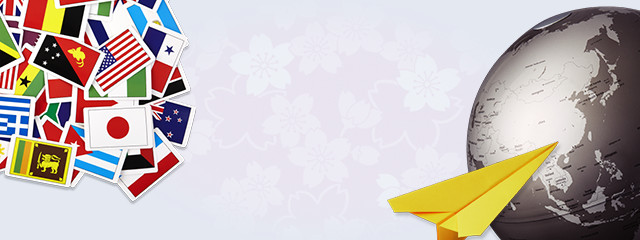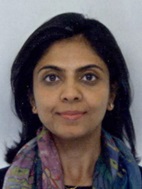
Faculty of International Studies
国際学部取り組み・プロジェクト紹介 詳細
更新日:2018年02月02日
【国際学部】A "Foreign Perspective" on Japan: Dr. Megha Wadhwa (GSE)
In our GSE Program, not only full-time staff, but also a variety of part-time teachers contribute to making the program attractive and multifaceted. Dr. Megha Wadhwa is one of the latter. Here you see an interview with her.

Dr. Megha Wadhwa
First, can you tell me about your classes at Kyoritsu, and your academic interests in general? What do you teach, and what kind of research do you do outside of your classes?
I teach Topics in Japanese Society and Communication in a Global Environment. In Topics in Japanese Society we discuss various topics that relate to Japan. That includes culture, Japanese etiquette, the position of men and women in Japanese society, and so on. The students actively participate in the discussion and give their opinion on things they like and the things they hope would change. The second course focuses mainly on English conversation, and we discuss various topics in that class. Without any second thoughts, I can say that I enjoy teaching students at Kyoritsu and every time my classes are finished, and I walk out of the university I am thankful for being in a profession like this.
I completed my Ph.D. in 2017. It was a hard but very inspiring journey. I did my research on the Indian community in Japan, and currently, my research focus is on South Asia, Migration, Gender, Religion, and Japanese Society. Presently, I am a Post-Doctoral Fellow at Sophia University and I am focusing on the child-care practices and situations of Indian migrants in Japan. I plan to expand and further enhance my Ph.D. research from various new perspectives.
Do you have any comment about the usefulness of dialogue (during the lesson) about Japan seen from "within" and “without”? In other words, how can the students deepen and widen their understanding of their own country, when learning about it with foreign teachers, in English?
The aim of hiring a foreigner to teach Topics in Japanese Society was to help students get a foreign perspective. In every class, when we talk about Japanese society, we always include discussion about some western countries and additionally I also talk about South Asia. Sometimes I have students from China or Korea, and they talk about their countries. By the end of each lesson, students understand how things are in q3Japan and how they are perceived by foreigners in Japan because of the cultural differences. This further leads to some fascinating discussion sometimes. They not only understand the good side of Japan and appreciate and value it more, but they also reflect on specific issues that they hope would change.
Please tell me a little about yourself. Where are you from, and how did you come to live in Japan?
I am from New Delhi. It is the capital of India, and I was born and brought up there. I acquired Japanese language skills, and after graduation I started working as a Senior Business Executive in Marubeni India Pvt. Ltd. While working for Marubeni I had the desire to learn the language further, and that is why I decided to enter a Japanese language school in Japan. I planned to finish the course and move back to India after a year and a half. But I think life had different plans for me. I found a full-time teaching job and decided to stay for a couple of years more. Later I quit the job and enrolled in Sophia University to study further and joined the Graduate Program in Area Studies, Global Studies. In 2017, I completed ten years in Japan. I plan to continue living in Japan unless life again has other plans for me.
I understand that you are involved in activities of the Indian community in Japan. What are some of the activities that you are involved in?
I am doing my research on the Indian Migrants in Japan. I have been a part of this community for almost ten years now, but officially I started my research on this subject in 2013. This research focuses on the lives of the Indian Migrants, and the challenges they face after moving to a country that, even though it has similarities, is widely different from their country of origin. While pursuing this research, I also acquired photography and filming skills for my fieldwork. They are a work in progress, and I hope to bring them to use in the coming years and create something using these skills.
Thank you very much for your comments, as well as for your contribution to our program.






